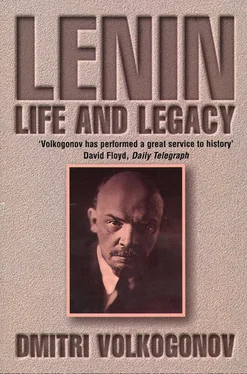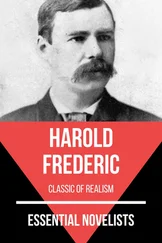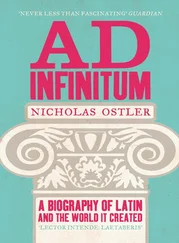In her later memoirs, Krupskaya often refers to Inessa, but usually in passing and in another context: ‘Inessa’s entire entourage lived in her house. We lived at the other end of the village and ate with everyone else’; ‘Vladimir Ilyich wrote a speech, Inessa translated it’; ‘all our people in Paris were then feeling strongly drawn to Russia: Inessa, Safarov and others were getting ready to go back’; ‘It was good to be busy in Serenburg. Soon Inessa came to join us’; ‘Our entire life was filled with Party concerns and affairs, more like student life than family life, and we were glad of Inessa.’ 96 To Krupskaya’s credit, having once decided the tone of her relationship with Inessa, as a Party comrade, she never changed it. Inessa’s presence was an inevitability which she accepted with dignity. Occasionally, she abandons her own conventions and writes in greater detail: ‘For hours we would walk along the leaf-strewn forest lanes. Usually we were in a three-some, Vladimir Ilyich and Inessa and I … Sometimes we would sit on a sunny slope, covered with shrubs. Ilyich would sketch outlines of his speeches, getting the text right, while I learned Italian … Inessa would be sewing a skirt and enjoying the warmth of the autumn sunshine.’ 97 It was perhaps during such walks that Inessa would talk about her origins, her parents and the dramas in her life.
She was born, according to the register of the 18th arrondissement, in Paris at 2 p.m. on 8 May 1874 at 63, Rue de la Chapelle, and was named Inessa-Elisabeth. She was the daughter of Theodore Stephan, a French opera singer aged twenty-six, and an English-French mother, Nathalie Wild, aged twenty-four, of no profession. Her parents were not married at the time of her birth, 98 but they legalized their relationship later at St Mary’s parish church in Stoke Newington, London. Inessa’s father died young, leaving his family of three small daughters penniless. Her mother became a singing teacher in London. The turning point in Inessa’s life was a trip to Moscow in 1879 with her grandmother and aunt, who taught music and French, and who together were capable of giving the girl a good education. The archives tell us little about her life, and the best Russian account so far to emerge is Pavel Podlyashchuk’s Tovarishch Inessa , first published in 1963 and revised with new material in 1987. This has been superseded by Ralph Carter Elwood’s Inessa Armand: Revolutionary and Feminist , published in 1992.
A gifted young woman, fluent in French, Russian and English, and an excellent pianist, Inessa became a governess. She took after her handsome father in looks, attracting the attention of a good many men, and in October 1893, at the age of nineteen, she married Alexander Evgenievich Armand, the son of a wealthy merchant. The wedding took place in the village of Pushkino, outside Moscow, in the presence of members of Moscow’s business élite, to which the Armands themselves belonged. 99
Everything seemed as it should in a successful, wealthy family. Inessa had a handsome, good husband, children, trips to the South and abroad. In the course of eight years she gave birth to five children, three boys and two girls. Despite her preoccupation with her family, she managed to read a great deal and was drawn to the social and political writings of Lavrov, Mikhailovsky and Rousseau. By the late 1890s she had also become seriously concerned with feminist issues, an interest she retained all her life. To all appearances, she was living in harmony with her husband, when suddenly, on the eve of the 1905 revolution, she left him, taking the children with her. She had been consumed by passion for another man, her husband’s younger brother Vladimir.
Everyone suffered in this great family drama, yet there were apparently no dreadful scenes, mutual recriminations or arm-twisting. Inessa was exercising her commitment to the principle of ‘free love’. Two weeks before she died in 1920 she would confide to her diary: ‘For romantics, love occupies first place in their lives, it comes before everything else.’ 100 By this time she had come to see love with different eyes, but she was recalling herself as a younger woman, when her dramatic departure from the marital home shifted her life onto a completely unexpected course.
Her life with the young Vladimir did not last long. Since 1903 she had become involved in illegal propaganda activities on behalf of the Russian Social Democratic Labour Party in Moscow, and in 1907 she was arrested (for the third time) and exiled to the North above Archangel. Vladimir followed her, but he soon developed tuberculosis and went to Switzerland for treatment. There was, however, no cure to be found, and two weeks after she had fled from exile abroad to join him, at the beginning of 1909, he died.
With the financial help of her ever-tolerant husband, who was also caring for the children, Inessa, now aged thirty-five, enrolled to study economics at the New University in Brussels. In the same year, in Paris, she met Lenin, whose name was well known to her, as a member of the Party since 1903, and thereafter for a decade she occupied a special place in his life, as the voluminous correspondence between them shows. The official version has always insisted that their friendship, although personal, was essentially one of Party comrades, lacking any suggestion of intimacy. Unofficially, it was always believed that Lenin was simply ‘obliged’ to love only Krupskaya, and would never have lowered himself to the rôle of adulterer. *
We have already seen that the Party leadership learned in the 1930s that there was a female acquaintance of Lenin’s in Paris who possessed a number of his intimate letters to her, which she would not consent to have published while Krupskaya was alive. This woman had been receiving a generous pension from the Soviet government, thanks entirely to her earlier friendship with Lenin.
While many of Lenin’s letters to Armand concerning Party matters have been published, those of a more intimate nature appear either to have vanished or to have suffered cuts at the hands of his editors. The following lines were removed from a letter he wrote to her in 1914: ‘Please bring when you come (i.e. bring with you) all our letters (sending them by registered mail is not convenient: a registered letter can easily be opened by friends. And so on … ) Please bring all the letters, come yourself and we’ll talk about it.’ 102 In this letter Lenin used the familiar form of address, ty . This period was the peak of their friendship, and it is most likely that he wanted Inessa to bring him the letters so he could destroy them. Inessa’s Western biographer, Carter Elwood, is of the opinion that Lenin may have wanted her to bring the letters because they contained potentially embarrassing comments about fellow Bolsheviks. 103 Whatever the reason, there can be little doubt that theirs was a uniquely close friendship.
Krupskaya was Lenin’s loyal comrade, his uncomplaining wife and dedicated helper. As well as Graves’ Disease she had a weak heart, which was perhaps one reason why she was childless. The writer Ilya Ehrenburg is reputed to have said: ‘One look at Krupskaya, and you can see that Lenin wasn’t interested in women.’ This was not so. It is quite possible, moreover, that what Ehrenburg found unappealing might have brought Lenin warm comfort. In any event, once Lenin met Inessa, they were virtually inseparable. She followed the Ulyanovs everywhere, always finding lodgings nearby and meeting both Lenin and Krupskaya frequently. She became almost an integral part of their family relations, and, as Alexander Solzhenitsyn has noted perceptively, Krupskaya saw her task as ensuring Lenin’s peace of mind by always giving Inessa a warm and friendly reception. 104
Читать дальше












